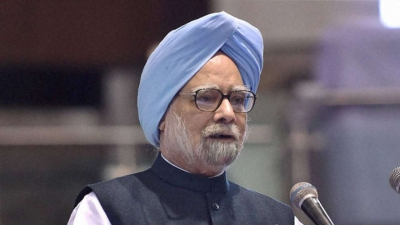
Manmohan Singh (born 26 September 1932) is an Indian economist, academic, and politician who served as the 13th Prime Minister of India from 2004 to 2014. The first Sikh in office, Singh was also the first prime minister since Jawaharlal Nehru to be re-elected after completing a full five-year term.
Manmohan Singh is a graduate of Panjab University, Chandigarh, the University of Cambridge, and the University of Oxford. After serving as the Governor of the Reserve Bank of India and the Deputy Chairman of the Planning Commission of India, Singh was appointed as the Union Minister of Finance in 1991 by then-Prime Minister Narasimha Rao. During his tenure as the Finance Minister, Singh was widely credited for carrying out economic reforms in India in 1991 which resulted in the end of the infamous Licence Raj system.
After completing his D.Phil, Singh worked for UNCTAD (1966–1969). During the 1970s, he taught at the University of Delhi and worked for the Ministry of Foreign Trade with the Cabinet Minister for Foreign Trade Lalit Narayan Mishra and for Finance Ministry of India. In 1982, he was appointed the Governor of the Reserve Bank of India and held the post until 1985. He went on to become the deputy chairman of the Planning Commission of India from 1985 to 1987.
Singh was first elected to the upper house of Parliament, the Rajya Sabha, in 1991 and was re-elected in 2001 and 2007. From 1998 to 2004, while the Bharatiya Janata Party was in power, Singh was the Leader of the Opposition in the Rajya Sabha. In 1999, he ran for the Lok Sabha from South Delhi but was unable to win the seat.
Picture Credit : Google

